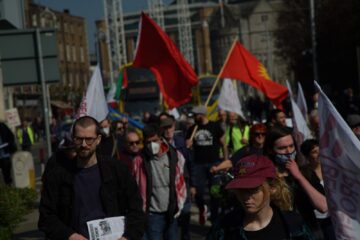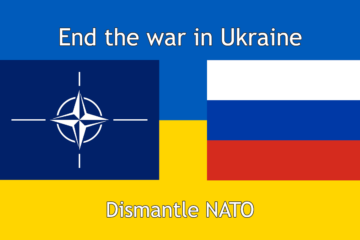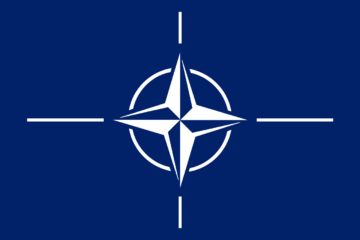Statement by the Communist Party of Ireland, 12 February 2016
As working people throughout the European Union are beginning to question its role and even its very nature, and whose interests it serves, another new grouping emerges to sow confusion and throw sand in their eyes.
The “Democracy in Europe Movement, 2015,” the latest grouping to parade itself as the people’s saviour, has sparked interest by the attendance of a representative of Right2Change at its founding meeting in Berlin on 9 February. On 13 February the Right2Change conference in Dublin will be addressed by video link by one of its founders, the former Greek minister of finance, Varoufakis. He will also be travelling to a number of peripheral states to promote this new group.
“Democracy in Europe Movement” is a gathering of individuals and failed politicians from the social-democratic (Labour Party) tradition. Varoufakis is not the only former minister involved: another prominent founder-member is Arnaud Montebourg, a former minister in the French government, also vice-president of the Habitat chain stores and a member of the strategic orientation committee of the Talan company (France).
Before the formal launch in Berlin the group issued a manifesto in which they declared that the movement’s aim or strategy is to “democratise” the European Union. They pose this “democratisation” against two “dreadful options”: a retreat into the cocoon of the nation-state, or surrendering to the Brussels democracy-free zone.
Their initial demands call for full transparency in decision-making, with live streaming of meetings of the EU Council, the Council of Finance Ministers, and the Euro Group, full disclosure of trade negotiations, minutes of the EU Central Bank, etc. While it would be useful to know what they are planning, we know from experience that the real and important decisions are made off stage: on the golf course, in expensive restaurants, or in the corridors of parliaments patrolled by the corporate lobbyists.
This latest grouping wants the existing EU institutions to target resources and implement policies to address the crises of debt, banking, investment, poverty, jobs, and migration. Firstly, this programme implies that these institutions make “bad” decisions because they operate behind closed doors or negotiate in secret, rather than the simple fact that these institutions represent, reflect and work in the interests of real economic forces. They are not neutral, nor above serving class interests.
These institutions and the individuals who populate them did not make bad decisions: they made the correct decisions for advancing the interests of the big corporations and finance houses. These structures were developed, and are constantly being refined, to ensure control and compliance with whatever strategy is required at any given time for the ruling elite while presenting a formal democratic appearance.
“Democracy in Europe” also want to convene “a constitutional assembly where Europeans will deliberate on how to bring forward, by 2025, a fully fledged European democracy, featuring a sovereign EU parliament that respects national self-determination and shares power with national parliaments, regional assemblies and municipal councils.” The long-term goal, in other words, is “to bring about a fully democratic, functional Europe by 2025.”
What does this democratic-sounding people-empowering, dressed in such fanciful language, really mean? They want a European “parliament” with “sovereign” powers: so what they are calling for is for all fiscal, monetary, economic and social decisions to rest in this enhanced “parliament.” They want all power to be given to this new parliament while at the same time “sharing” power and “respecting” national parliaments and regional assemblies.
What exactly would they be “sharing” with national parliaments? Clearly, if you have a “genuine” and democratically legitimate European Parliament then you must have a “European Government” to give expression to this new democratic institution. They want a “left” federalist integration strategy, which they prefer to the existing process of intergovernmentalism, where representatives from the member-states’ governments make decisions.
So the Irish people could vote for whoever they wished at the national level but would be unable to effect change at that level, because all the real power and decision-making, according to this group, would be decided in this new “democratic” European parliament.
Significant policy decisions are already out of the hands of member-states, and we already have a form of “European government,” where small circles of a politico-economic elite—such as the European Round Table of Industrialists—decide what needs to be done; so in this group’s view it’s just a matter of democratising this process.
Here we need to draw upon the recent experience of the debt burden imposed upon the Irish people by the ECB and EU Commission, as well as the “Programme for Ireland,” requiring the privatisation of public assets, including water and public companies.
This is a false presentation, under the guise of supposedly greater democracy, that some sort of enhanced EU Parliament is better than the present rule by an economic elite and its technocratic bureaucracy, which indeed it would be unlikely to challenge, even if it could.
Even if we took this idea at face value, there is simply no possibility that it would have legitimate support from the people in order for them to accept a majority vote in a revamped EU Parliament in a way similar to the existing position within independent states, where the people allow themselves to be governed by majority decisions taken by national parliaments.
If the existing balance of political representation in the EU Parliament were to emerge in this proposed rebooted parliament, where the majority Christian Democrats and other conservative parties are backed up by a social-democratic minority, which shares their outlook on fiscal and economic policy, they could “democratically” vote in austerity and impose the massive corporate debt upon us.
Does “Democracy in Europe” seriously believe that in a rebooted EU Parliament such policies would be more acceptable to the working people of Greece, Spain, Portugal, or Ireland? Like the establishments throughout Europe, they wish to depoliticise democracy, to depoliticise economic and fiscal decisions, in fact to depoliticise the nation-state itself, claiming that nothing can be done at the nation-state level any more, that nation-states are redundant as regards fiscal, economic and social policy.
It is simply impossible for a parliamentary form of EU government to gain popular acceptance, for a number of reasons. The different sizes and economic strengths of the member-states, and the heterogeneous make-up of national populations, make this impossible.
The EU parliament, as it stands, is a façade, a pretence of democracy, which serves to hide the undemocratic workings of the system. It serves also as propaganda for a “European identity” as a disguise for the neo-colonial relationship that exists between the powerful core states and the periphery. This is a lesson that many nations seeking separation from existing multinational states, such as Scotland, Catalunya, and the Basque Country, need to learn. There is simply no independence to be found within the EU.
The proposals of “Democracy in Europe,” increasing the apparent powers of the parliament, would only redecorate the façade and would do nothing to alter the imperialist character of the EU, both internally and externally.
This demand or strategy for further integration, even with some sort of enhanced electoral-representative component, is not the same as more people’s control. It is not for a fundamental shift in power from the corporate board rooms and finance houses to working people, as it simply ignores, or fails to understand, the nature of political and economic power, the nature of the state and the institutions of governance and control.
The hollowing out of representative democracy following from the adoption of the many EU treaties would be further advanced if and when TTIP is adopted. The EU treaties were for removing all fiscal, economic and social policy decisions away from the national level to ensure that they could not be influenced by national class struggles, to permanently ensure that a progressive government elected at the national level would be severely restricted in what it could do. The fiscal and economic straitjacket is firmly tied.
The ruling elite, particularly at the EU level, have depoliticised fiscal and economic decisions to mere technical matters. This also applies to the depoliticisation of the individual states. Just like the ruling elite, “Democracy in Europe” claim that problems cannot be solved at the national level: they can only be solved at an international level, conveniently letting the Irish ruling class off any responsibility and denying the possibility of change.
The handing over of sovereign powers from the national to the international structures by national ruling classes can only be understood as part of the process of rolling back democratic, economic and social gains won by working people from their own ruling class.
What Varoufakis and others like him are advocating is a form of democracy without the people, a further erosion of national sovereignty and national democracy, and the erection of new obstacles to any possible radical transformation of economic and social structures at the national level.
Individuals like Varoufakis and groups like “Democracy in Europe” are just the latest in a long line of those who have attempted to put a human face on an inhuman system and its institutions of control, such as those of the European Union. In this they are emulating the successful campaign of SYRIZA in Greece, which mobilised popular forces in order to lead them to defeat and disillusionment. That is the mission of Varoufakis, now on the European stage.
What is being offered is simply more of the same: just old wine in new bottles. There is a growing need for much more radical surgery if we wish to build and live in a decent society, where solidarity and economic justice between people is the cornerstone, a society where the “market” must be subjected to the people, rather than as it is now, where the people are subjected to the “market.”










